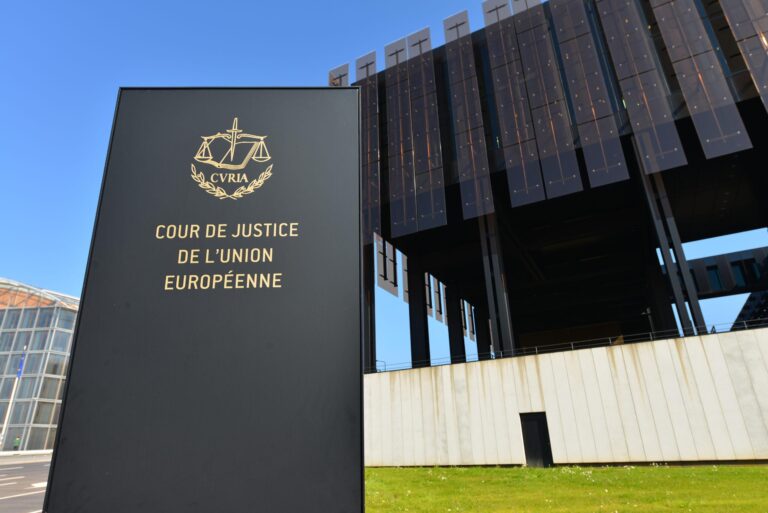The European Court of Human Rights has ruled that the United Kingdom did not fail to protect political rights in the context of alleged Russian interference in UK elections, delivering a significant judgment in the ongoing scrutiny of foreign influence on democratic processes. The court’s decision addresses claims that the UK government inadequately safeguarded its electoral integrity against covert actions by Russian actors, ultimately finding that the state upheld its obligations under the European Convention on Human Rights. This ruling marks a critical moment in the evolving legal and political discourse surrounding election security and international interference.
European Court Confirms UK Compliance in Protecting Political Rights Despite Russian Election Interference
In a landmark decision, the European Court has ruled that the United Kingdom upheld its obligations to protect political rights despite significant concerns about Russian interference in recent elections. The court emphasized that, while foreign interference remains a serious threat to democratic processes, the UK implemented adequate legislative and procedural safeguards to mitigate undue influence. Key measures highlighted include enhanced cybersecurity protocols, rigorous monitoring of political campaign financing, and cooperation with international partners to identify and counteract disinformation campaigns.
The judgment also outlined several critical aspects that contributed to the UK’s compliance:
- Robust voter information systems designed to prevent fraudulent activities and ensure transparency
- Cross-agency collaboration between intelligence services, electoral commissions, and law enforcement
- Public awareness campaigns to educate voters on potential external threats and misinformation
| Measure | Effectiveness | Implementation Year |
|---|---|---|
| Cybersecurity Enhancements | High | 2018 |
| Campaign Finance Monitoring | Moderate | 2019 |
| Public Awareness Initiatives | High | 2021 |
Analysis of Court Findings Highlights Legal Standards Applied to Electoral Security Measures
The recent ruling by the European Court sheds light on the rigorous legal standards the judiciary employs when assessing the adequacy of electoral security measures. The Court emphasized that safeguarding political rights, particularly in the context of foreign interference, requires a nuanced balance between state sovereignty and individual freedoms. Crucially, the Court underscored that a government’s obligation to protect electoral integrity is not absolute but must be evaluated against practical limitations and the effectiveness of implemented safeguards.
Within its deliberations, the Court considered several key legal principles:
- Proportionality: Measures must be appropriate and not overly restrictive relative to the threat.
- Transparency: Authorities should maintain clear procedures to detect and respond to interference.
- Due diligence: States must take reasonable steps to prevent and mitigate external influences.
These standards set a precedent for evaluating state actions amid digital threats and foreign election meddling. The ruling’s detailed framework fosters clearer accountability while respecting the complexity of safeguarding democratic processes in a rapidly evolving geopolitical landscape.
| Legal Standard | Application in Case | Outcome |
|---|---|---|
| Proportionality | Evaluated UK’s measures versus perceived Russia interference threat | Measures deemed adequate |
| Transparency | Assessed government’s reporting and detection mechanisms | Found to meet necessary requirements |
| Due Diligence | Reviewed steps to prevent foreign meddling | Considered reasonable and effective |
Experts Recommend Enhanced Transparency and Vigilance to Safeguard Future Democratic Processes
In light of recent rulings, legal experts emphasize the need for heightened transparency within electoral oversight mechanisms to effectively counter foreign interference. While the European Court found the UK compliant in protecting political rights amid alleged Russian election meddling, there’s a consensus that complacency could invite future threats. Enhanced transparency protocols, including rigorous monitoring of political funding and digital campaigning, are recommended to bolster public trust and secure electoral integrity.
Vigilance also extends to fostering cross-agency cooperation and proactive intelligence-sharing to preempt malicious activities. Experts suggest that democratic resilience relies on a multifaceted approach encompassing:
- Real-time election auditing through independent bodies
- Mandatory disclosure of foreign-linked political contributions
- Public education campaigns on misinformation tactics
These measures aim not only to detect interference but also to build societal immunity against subtle forms of manipulation, ensuring future democratic processes remain robust and credible.
| Recommended Action | Expected Impact | Implementation Timeline |
|---|---|---|
| Enhanced Funding Transparency | Reduce covert foreign influence | Short-term (6-12 months) |
| Cross-Agency Intelligence Sharing | Early detection of election threats | Medium-term (1-2 years) |
| Public Awareness Campaigns | Increased voter resistance to propaganda | Ongoing |
Key Takeaways
The European Court’s ruling underscores the complexities of addressing foreign election interference within existing legal frameworks. While the judgment affirms that the UK has not breached its obligations to protect political rights in this instance, it also highlights ongoing challenges for states navigating the evolving landscape of cybersecurity and democratic integrity. As concerns over external influence persist, the decision may serve as a pivotal reference point in shaping future policies and legal standards across Europe.




